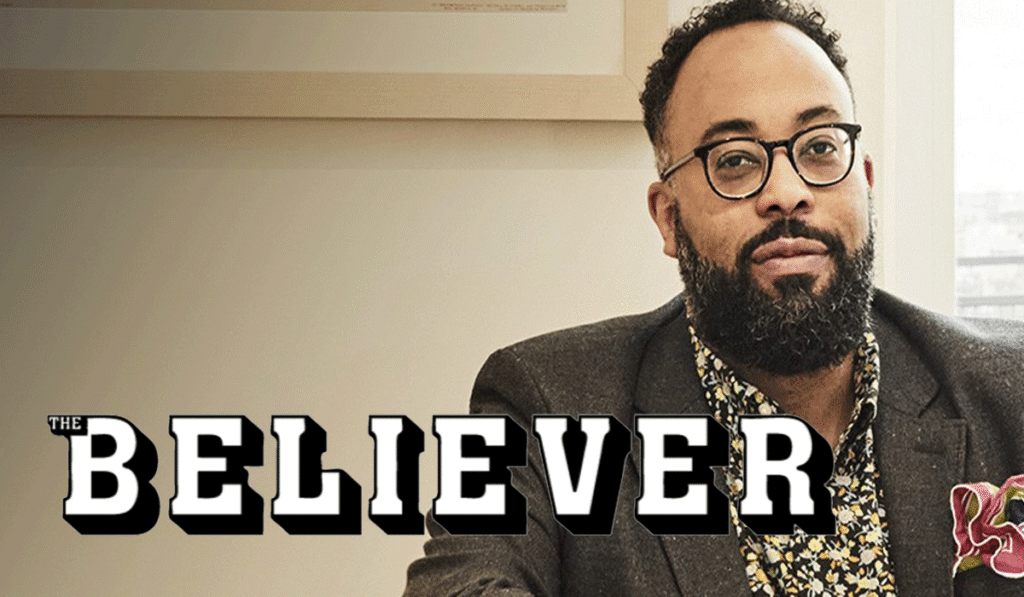PART I
THE BELIEVER: You’ve been in the poetry and publishing worlds for some thirty years now. What changes have you seen in that time?
KEVIN YOUNG: I think poetry itself has broadened and deepened. What I see, having edited The New Yorker anthology, is the way that poetry really, in the past forty years, has exploded in terms of who’s publishing and who’s able to publish and the outlets for publishing. At the same time, it once felt like there was a different kind of robust, smaller-press life, and you had these different outlets and magazines, some of which I miss. But in general, I think there are a lot of people writing who were always writing, but who are now getting published more.
– – –
PART II
THE BELIEVER: One of your first books to receive widespread acclaim was the often-humorous Jelly Roll: a blues. It often seems like humor has an uphill battle when it comes to being recognized as “serious” poetry—so how did you come to bring it into your work?
KEVIN YOUNG: For me, there was a moment—probably earlier than that book, but I think it came to its fruition in that book—when I realized poems could be funny. Like, you knew they could be different ways, but sometimes poets, starting out, especially—you sit down, and you think, Well, now I’m going to put on my poet’s cap and take out my quill and write really serious poems. But to have a kind of whole self… Life is absurd and funny and serious and sad. The blues helped me understand how you could do all that at once. And for me, what’s powerful about the blues is that it’s good-time music—it’s meant to make you move and dance—but it is also sometimes singing the saddest thing you can ever think of. Losing your home, losing a loved one, losing your dog. But you make a rhyme out of that, or you make something unexpected. And that idea of the unexpected was what also drew me to the blues, and how you could kind of pivot. The blues have that turn in it, and I thought that was important, because it’s how it feels to be alive. How do you write about love in a time of war? Or how do you write about love in a time of heartbreak? These are the things. They’re ancient. But I love how the blues talk about them in a modern way, and it really inspired me to try to say it all at once.
– – –
PART III
THE BELIEVER: Book of Hours took a very different tone and focused on grief. What was the hardest thing about that prolonged meditation on grief?
KEVIN YOUNG: The hardest thing, of course, is missing your loved one. It’s a complicated alchemy, because you’re trying to capture it, but also not describe it. You have to kind of reenter it and reenact it in a way. And the best poems—whether they’re about grief or love or other things—really enact, they don’t describe, and so you reexperience it as a reader. But I think what poems can’t do is prepare you. What they can do is accompany you. And that was sort of what they did for me.
I wanted the metaphors and the meaning to come from the experience itself, so I try to not say, This thing is like something very far off, but instead, talk about the sound of kids playing in a pool near the terrible hotel you’re staying at, which I call the “Worst Western.” And you can hear the kids, and how does that relate to how you’re feeling? It felt like this echoey, faraway joy—nearby, but so far. And there were other moments like that in the book when I tried to turn the experience in a way, or find the myth in it. Like having to give my father’s dogs away. It doesn’t say this is like losing him. It just describes it.
– – –

